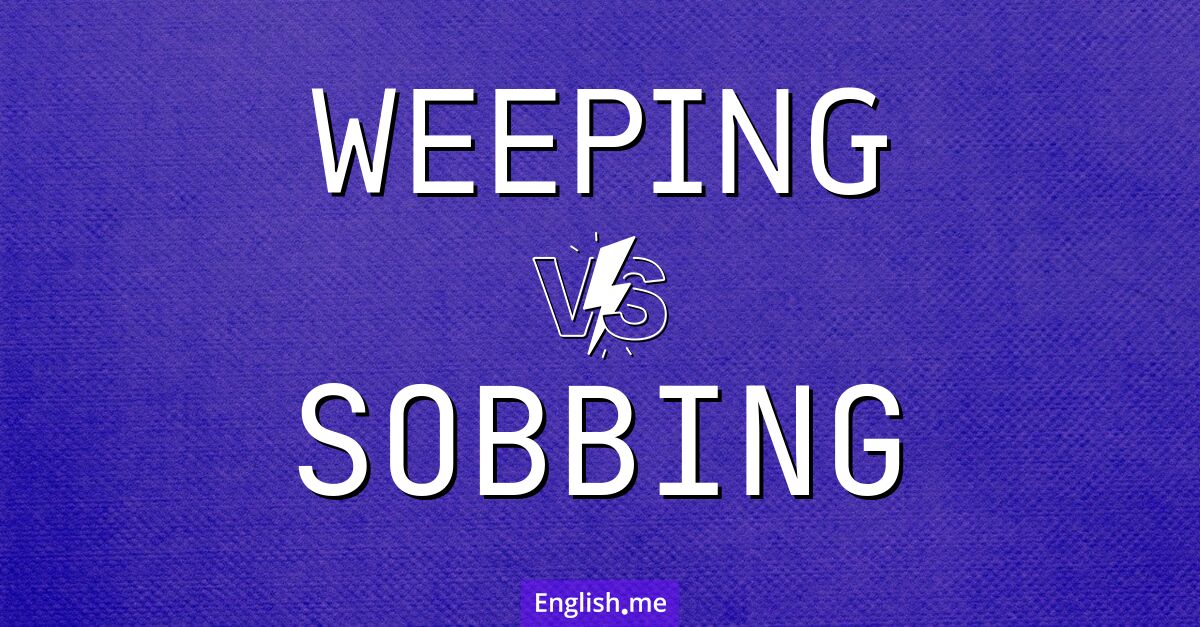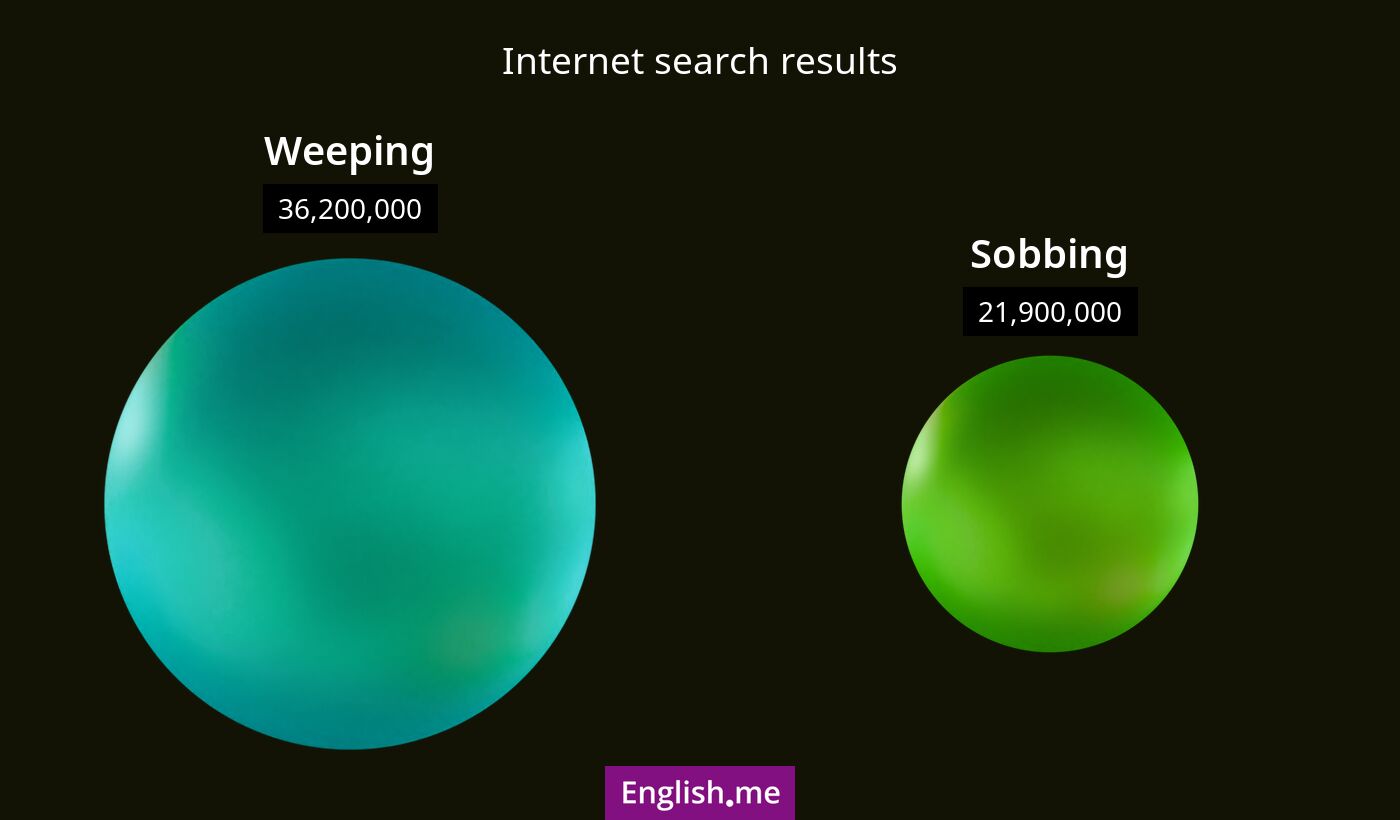Tears and tremors: "weeping" vs. "sobbing"
Reviewed and edited by  Anwar Kareem 06/11/2024, 06:28
Anwar Kareem 06/11/2024, 06:28
English.me team member

 What is similar?
What is similar?
Both "weeping" and "sobbing" refer to acts of crying. They both involve shedding tears and are emotional expressions often associated with sadness or distress.
 What is different?
What is different?
Weeping is generally softer and can be more silent, while sobbing refers to a more intense form of crying that often includes audible sounds like gasping or heaving. Sobbing usually conveys greater emotional intensity than weeping.
 Which one is more common?
Which one is more common?

 Examples of usage
Examples of usage
Weeping- She was quietly weeping as she read the letter.
- The child sat in the corner weeping after his toy broke.
- Tears were weeping silently down his face during the touching speech.
- He was loudly sobbing and could barely breathe.
- After the argument, she collapsed onto the bed, sobbing uncontrollably.
- The news was so heartbreaking that many in the audience were sobbing.

 English
English español
español française
française italiano
italiano deutsche
deutsche 日本語
日本語 polski
polski česky
česky svenska
svenska Türkçe
Türkçe Nederlands
Nederlands